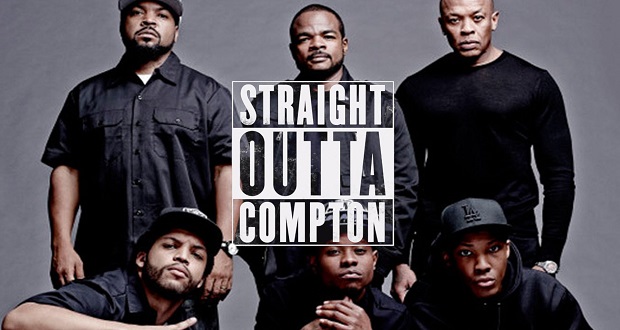
The movie Straight Outta Compton scored an estimated $60.2 million this weekend making it the highest opening biopic, as well as the highest August opening for an R-rated film. Straight Outta Compton depicts the groundbreaking rap group NWA’s rise to fame and influence on hip-hop music.
NWA is praised for its critique of anti-black state violence and criminalization, however, the brutalized bodies of black women have been lost in the media accolades of the movie, ignoring NWA’s important role in yoking rape culture and rap misogyny. In their lyrics the group discusses gang raping women, statutory rape, coercing women into prostitution, and murdering prostitutes. In a recent L.A. Times profile of the group, one of the members, Dr. Dre, was praised as a wise businessman and entrepreneur but his history of vicious misogyny and violence against black women was overlooked.
Dr. Dre physically and verbally abused his ex-girlfriend, singer Michel’le Toussant, for several years. In one incident he abused her so badly that she needed plastic surgery to recover. Additionally, in 1991 he brutally beat Dee Barnes, a television host, because of negative comments that were made about the group on the show. As a result, Barnes’ and Michel’le’s career ended while his continued to flourish underscoring black women’s perilous status in hip-hop as well as intimate partner violence in the black community.
Many times black women do not want to report abuse against their partners because they will be vilified and accused of tearing the black man down. For example, Robin Givens was accused of being a gold digger as opposed to a domestic violence victim. After being convicted of raping Desirre Washington, Mike Tyson received a hero’s welcome by Harlem while she had to change her identity and undergo cosmetic surgery; and Anita Hill was accused of dressing inappropriately after reporting the sexual harassment she endured from Clarence Thomas, a Supreme Court judge.
We must acknowledge the pain that black men have inflicted on these women without feeling as though we are doing the black community an injustice. It is time to shift focus to the root cause of perpetrator behavior: misogyny and patriarchy and stop blaming the women.


















